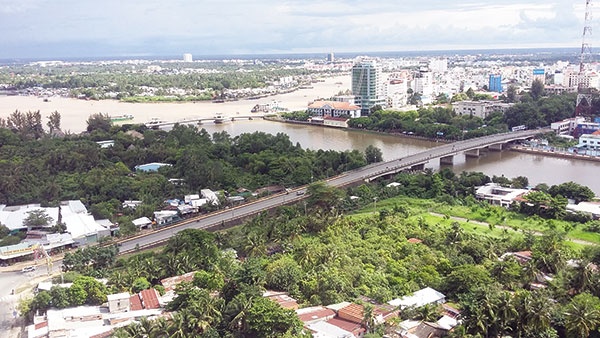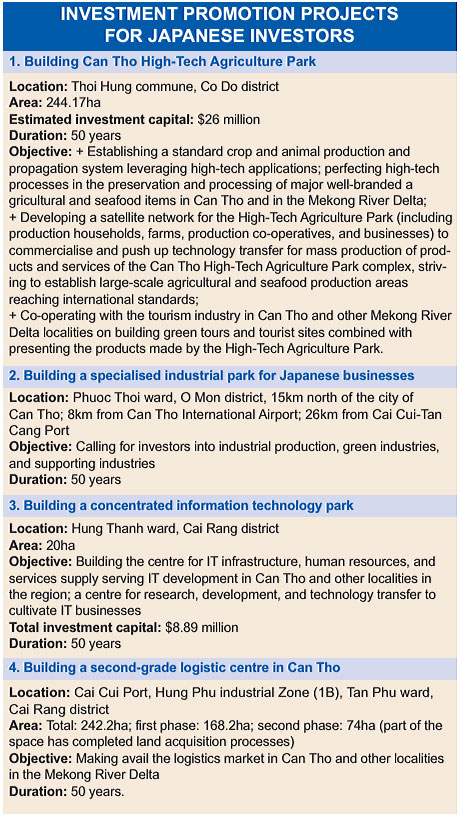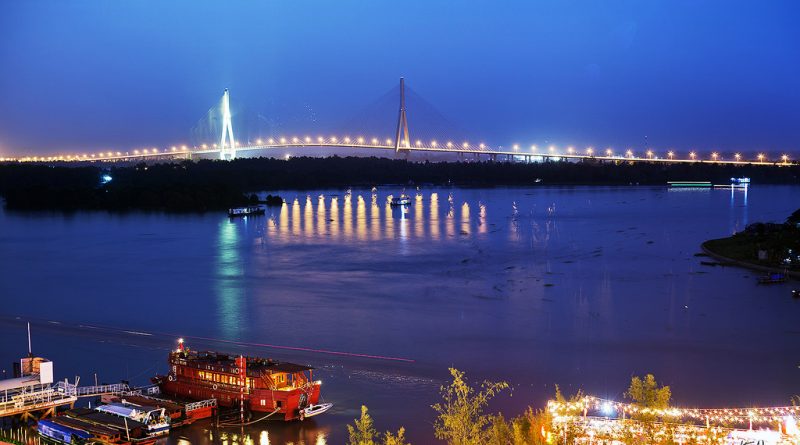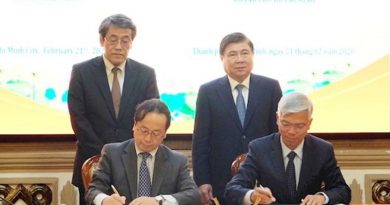Can Tho builds bonds with firms from Japan
With financial strength, state-of-the-art technology, and management expertise, Japan is one of the important business partners capturing special attention from the Mekong Delta city of Can Tho for investment co-operation. Huu Phuc reports.
 |
| Can Tho looks to Japanese firms to co-operate on key projects within the city |
From late May until now, Chairman of the Can Tho People’s Committee Vo Thanh Thong has twice visited Japan’s Kansai prefecture for co-operation and investment promotion, accompanied by leaders of city-based state agencies and businesses.
The most recent visit came in mid-October, to Okayama and Wakayama provinces. According to director of the Can Tho Investment-Trade Promotion and Exhibition Centre Nguyen Khanh Tung, apart from meeting local government leaders and making field surveys at some Japanese businesses’ production workshops, the Can Tho business mission hosted two seminars for business networking, which attracted about 150 Japanese companies.
On this occasion, Can Tho leaders presented opportunities for investment co-operation in the city, and responded to issues the Japanese investors brought forth.
In particular, Thong highlighted several social and economic infrastructure projects which promise to be highly appealing to foreign investors.
In 2018, more flights are set to launch directly from Can Tho to other domestic and international destinations like Haiphong, Nha Trang, Bangkok, Singapore, and possibly to Japan’s Kansai International Airport.
A golf course and an international hospital are also slated for completion in late 2018, while Ho Chi Minh City-Can Tho Expressway is slated for completion by 2021.
Additionally, the investment proposal of Can Tho International University has been approved, and a high-end apartment project invested by the Can Tho Investment and Development Fund is awaiting investment from Japanese businesses.
After the visit, Can Tho and the city of Okayama signed a joint statement to push mutual co-operation in industry, agriculture, and tourism. In the meantime, Can Tho signed memoranda of understanding with four Japan-Vietnam friendship associations, laying the groundwork to deepen bilateral co-operative relations.
In an earlier trip to Japan in late May and early June, Can Tho and Japan’s Hyogo province signed a joint statement on co-operation where both sides vowed to facilitate trade development and investment promotion from Hyogo to Can Tho, and strengthen economic co-operation through increased trade, tourism, and human resource training.
In the past year, Can Tho has also received a number of Japanese government leaders and business missions searching for investment opportunities in high-tech agriculture, education and training, and environmental sustainability.
 |
Creating a conducive investment environment
According to the Can Tho Investment-Trade Promotion and Exhibition Centre, Can Tho is currently home to six Japanese investment projects valued at $12.05 million in total registered capital, still a modest figure.
However, the city expects to witness a breakthrough in attracting Japanese investments in the time to come.
Kyoshiro Ichikawa, expert at Japan Desk Can Tho, said that as the centre of the southwestern region, Can Tho stands as the best point for trade exchange and is suitable for the development of processing, mechanical engineering, and port logistics infrastructure. In addition, the city has introduced very practical policies to support investors.
The Japan Desk Can Tho Office was established earlier this year in Can Tho to help promote the city’s image to Japanese investors, as well as tackle the impediments facing Japanese investors in the city in particular, and in the Mekong River Delta region in general.
According to Sasaki Noriyuki, deputy director of Brainworks Asia Limited, the Mekong River Delta is an area of interest for Japanese investors. In the region, Noriyuki said, Japanese businesses are seeking investment opportunities in the fields of education and training, food and agricultural processing, and agriculture.
“Can Tho was reported to [have a] concentration of quality human resources in the Mekong River Delta, so we decided to set down in the city. Our project on producing sport gloves for export has been operating in Can Tho for more than 10 years, with upbeat business results. We plan to open an additional production factory in Can Tho,” said Motoyuki Nakamura, general director of Tri Viet International Limited based in Can Tho’s Tra Noc Industrial Zone.
Can Tho has also assigned the Can Tho Investment and Development Fund to promote investment into a specific industrial park (IP) for Japanese investors. According to the fund’s director Le Van Thong, the project on building an IP infrastructure and workshop system at O Mon IP in O Mon district’s Phuoc Thoi ward will cover about 256 hectares of land.
The first phase will include 134ha, with total capital investment of around VND3.5 trillion ($159 million), from 2018 to 2020.
The second phase will cover 122ha. The project aims at building IP infrastructure and a modern factory system, combined with building associated residential blocks to ensure integration between the project components, and emphasizing green standards to satisfy Japanese investors’ requirements.
Source: VIR





